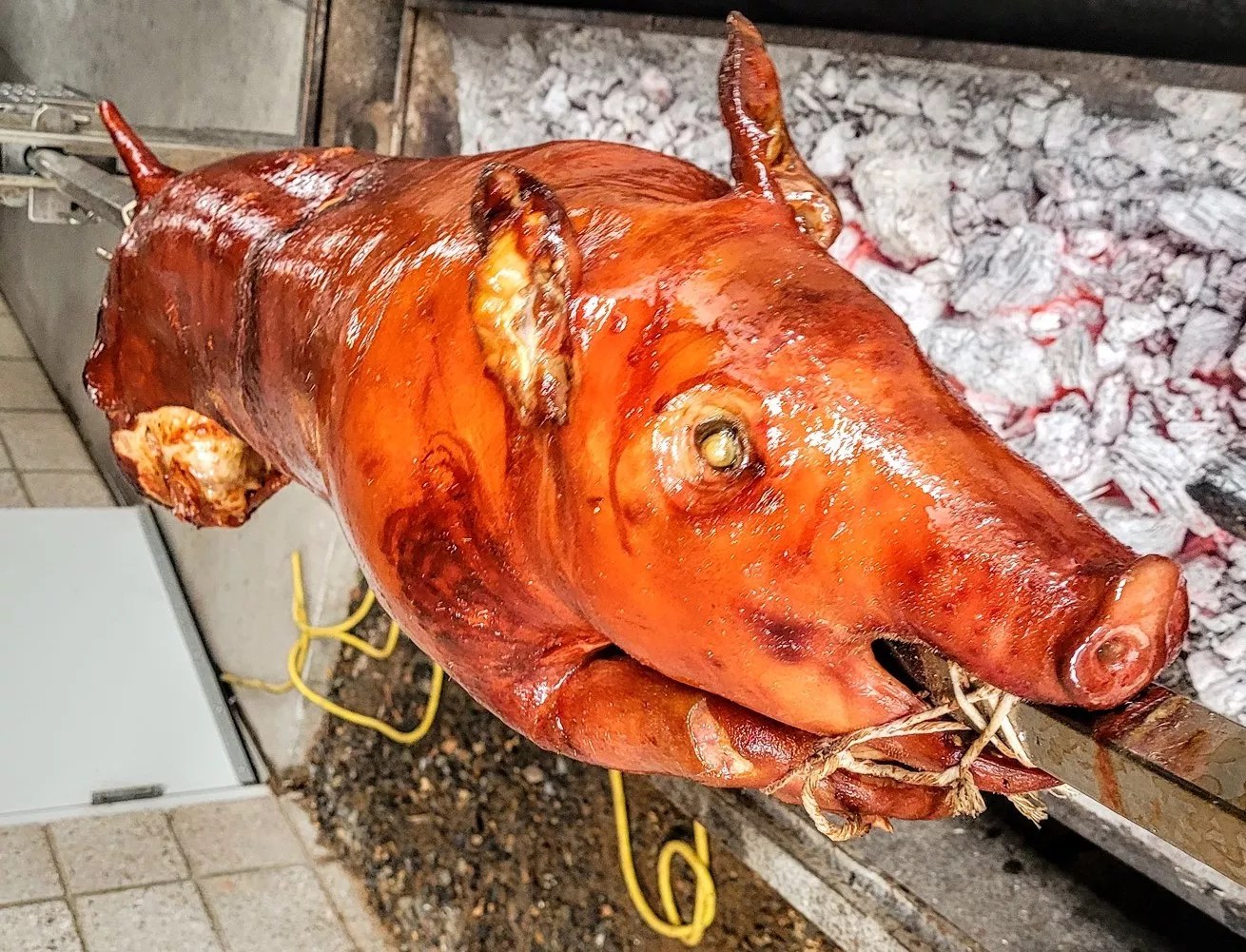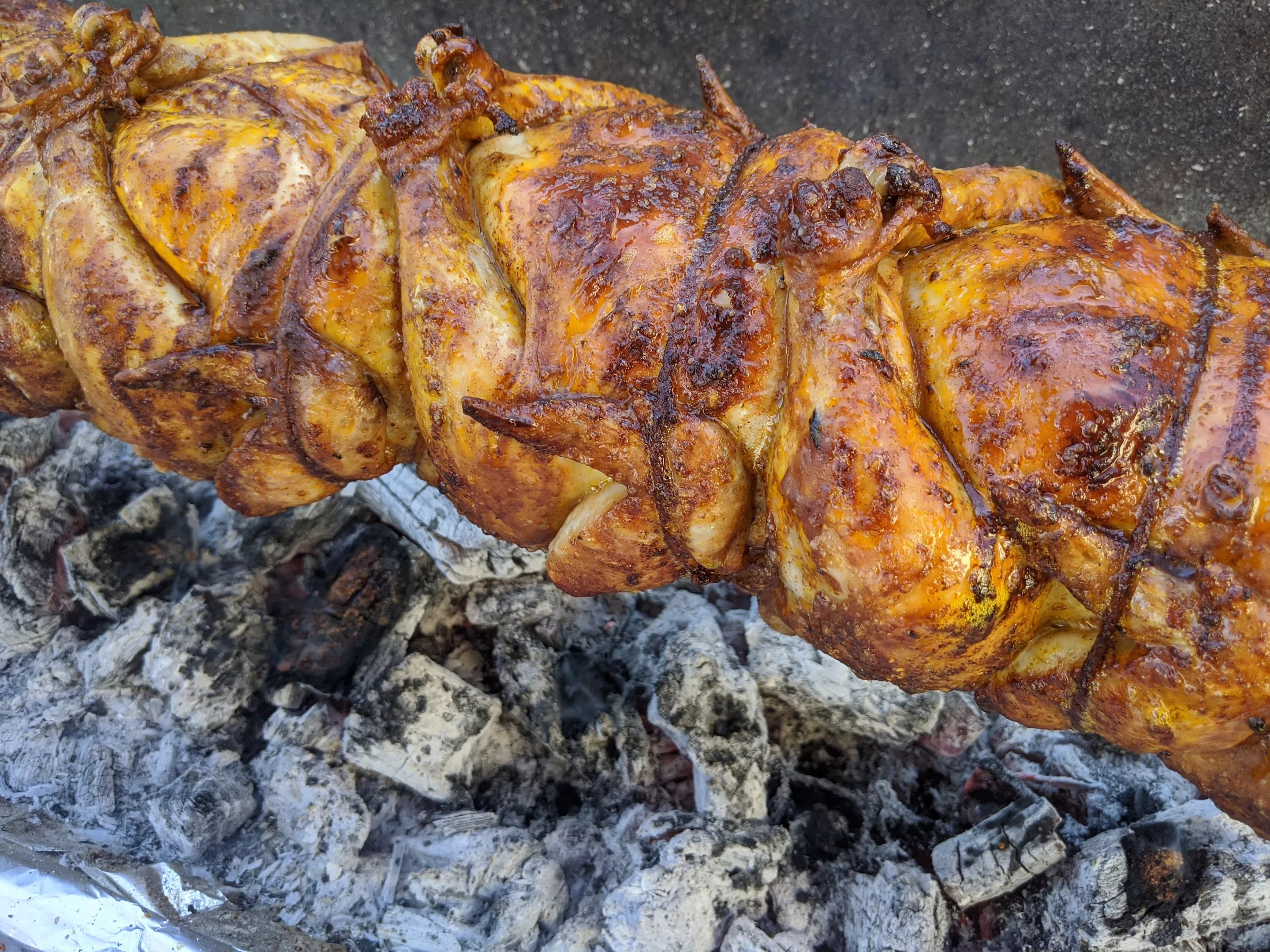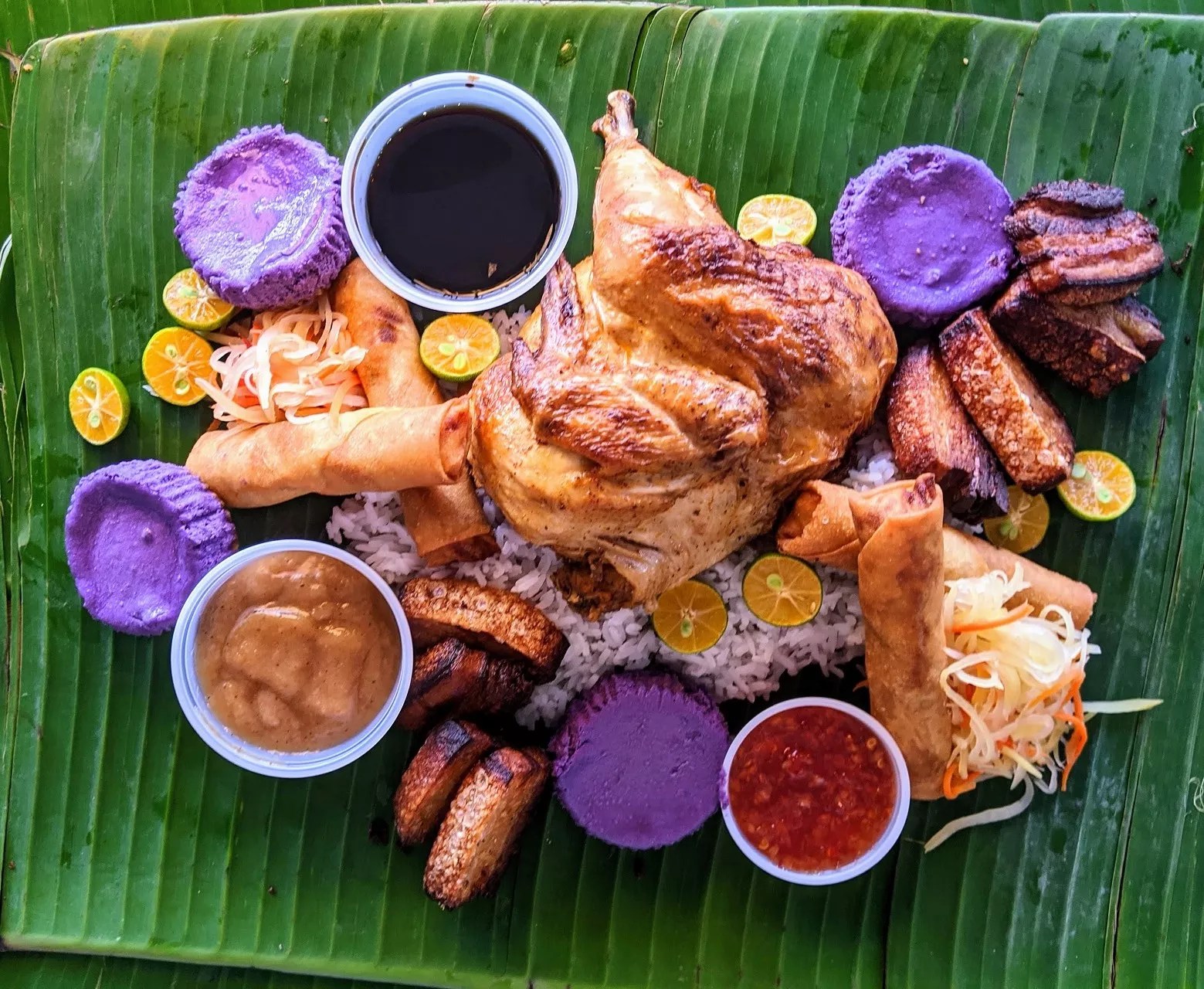
Brian Webb

Audio By Carbonatix
Before COVID, it looked like Brian Webb had a solid business plan for Phx Lechon Roasters – a vendor we touched on in August while diving into the Valley’s under-the-radar Filipino cooking scene. Webb had regular gigs at farmers’ markets, along with large-scale events and scores of people lining up for mouth-watering slices of lechon – or whole spit-roasted pig.
The pandemic eliminated these opportunities for lechon, but Webb continued to connect with Filipino families and other communities who wanted to celebrate with a whole roast pig and locally made Filipino food.
Last month, Phx Lechon Roasters sold out of whole pigs for Christmas. Webb says he even had a customer from Canada who ordered a whole lechon for her parents in Tempe. “I’ve been selling a lot of whole pigs to Latinos, people from Mexico. A lot of Puerto Ricans,” Webb says. “The pig really transfers over to so many different cultures. Everybody loves the pig. Not everybody makes it.”
Through desert heat or chilly mornings, Webb says he’s willing to deal with extremes to cook his food.

People line up for Brian Webb’s food.
Brian Webb
“The other morning, I wore longjohns to cook the pig because it was freezing,” he says, giving us a glimpse into his day. “But standing in front of that hot pit, I had to take the longjohns off.”
His customers find him through word of mouth, from past events, and on social media. And he was guided on how to adapt his business model to the pandemic thanks to Local First Arizona.
“I learned that I needed to focus on multiple revenue streams,” he says. “In January, it’s going to be kamayan dinner pickups, whole pig pickups, and then pop-ups.” (More on that later.)
Webb prepares his food inside the Local First Arizona Community Kitchen in downtown Mesa. He’s one of several food entrepreneurs who went through LFA’s restaurant boot camp – a six-week course that helps people jump-start their food ventures.
Phx Lechon Roasters is one of 35 businesses in this kitchen, which is made possible through a partnership with El Rancho del Sol apartment residents and property owners along with community development partners.
LFA food programs director Gabe Gardner says the biggest current challenge for any food business, obviously, is people dining out less or not spending as much on restaurant food.
Gardner says none of the restaurants in the LFA kitchen are brick-and-mortar; they’re pop-ups, market vendors, or mobile operations. “That’s why they’re working out of the kitchen in Mesa – because it removes a barrier for them to enter the food space,” he says. “The biggest barrier to starting any sort of food business is an affordable kitchen space. So by offering it at a reduced rate, we open that space up to more people.”
But it’s not designed to be a permanent thing.
Gardner says making great salsa in a home kitchen is one thing, but “scaling it to the point where I sell it for profit is something else entirely,” he says. “So we begin with the idea and we go through things like permitting, insurance, digital marketing, and more. After two years, the hope is that you’ve grown the business to the point where you outgrow the kitchen.”

The Kamayan take-home dinner from Phx Lechon Roasters includes lechon manok (rotisserie chicken), lumpia, lechon kawali (crispy pork belly), and rice.
Brian Webb
Back to Webb, who slow-roasts his whole pigs in the same style used by the family of his wife, Margita, and her home province of Cebu – located roughly 500 miles south of Manila, the Philippines capital. For those unfamiliar, you can catch a glimpse of the lechon-obsessed life in the Cebu episode of Netflix’s Street Food.
Moving forward, Webb is also designing a weekly kamayan take-home dinner that can feed three to four (hungry) people. In Tagalog, kamayan means to use your hands, and a kamayan meal is a typical Filipino feast eaten without utensils. Webb roasts chicken over charcoal for lechon manok. He also fries lumpia with pork from The Meat Shop and spends 15 hours braising pork belly pieces for lechon kawali, which is also fried for crispy pork skin. This eat-with-your-hands feast comes with pancit bihon (rice noodles with chicken), white rice, and banana leaves (which can be used as plates).
According to Gardner, Webb is one of the food business owners who can survive the pandemic.
“You really have to bust your ass. The ones that I see that are successful, are working more now than they were before,” Gardner says. “The ones that are really successful are there in that kitchen, to be honest, more often than I am.”